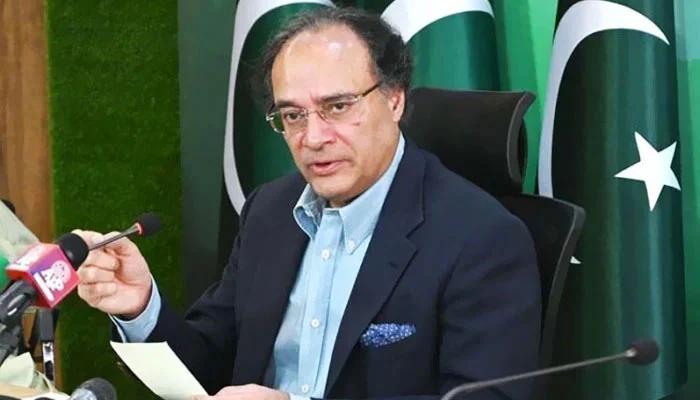ISLAMABAD, (TDI): Pakistan’s Finance Minister Muhammad Aurangzeb revealed alarming statistics about tax evasion in Pakistan during a press conference in Islamabad on Thursday.
He stated that annual tax theft amounts to nearly Rs7,000 billion and emphasized the government’s commitment to broadening the tax base and reforming the tax system.
The minister declared a “war against tax evaders,” acknowledging that the burden of taxes primarily falls on the salaried class. He outlined the goal of increasing the tax-to-GDP ratio to over 13% and establishing a fair and equitable tax regime, where every sector contributes to the nation’s economic improvement.
Earlier, a spokesperson for the Federal Board of Revenue (FBR) announced plans to bring approximately 2.8 million potential households into the tax net, which could generate around Rs1.6 trillion for the economy.
Also Read: Pakistan eager to enhance trade with KSA: Minister
The FBR said that while there are about 3.5 million high-income households liable for taxes, 2.8 million of them are currently not paying.
The government is implementing a comprehensive strategy to enhance the tax-to-GDP ratio, resulting in an increase in both the number of tax filers and tax collection for the current fiscal year (2024-25).
Earlier today, speaking at the Pakistan-Saudi Arabia Business Forum, Muhammad Aurangzeb said that the government’s role is to facilitate, not engage in business, and welcomed Saudi Arabian delegates to foster trade and investment through a Business-to-Business (B2B) model.
Also Read: COAS Praises Saudi Leadership’s Support to Pakistan
He highlighted significant advancements in macroeconomic stability over the past 12 to 14 months, noting that Pakistan has achieved a primary surplus, reduced its current account deficit to below $1 billion, stabilized its currency, and increased foreign exchange reserves to cover two months’ worth of imports.
Aurangzeb pointed out that these improvements have been reinforced in the current fiscal year, marked by strong remittances, export growth, and a drop in inflation from 38% to 6.9%. He also mentioned that the reduction in the policy rate has positively impacted businesses.



